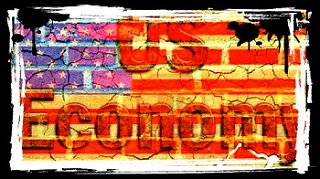
Stock investors track the U.S. economy tightly, like a barnacle on the hull of a boat. And these days, that tracking mindset is sliding underwater.
Michael Mussio, CFA and Managing Director with FBB Capital partners, says that the U.S. economy is growing, but at a glacial pace. Mussio says
“We’re continuing a ‘slow and low’ recovery – as evidenced by yesterday’s low GDP figure. In that regard, the stock market continues to climb a wall of worry, and the more investors fear the markets rise, the healthier it actually is. The expected rise of the Fed’s rates, Europe’s deflationary environment and increased political turmoil from Russia to Iraq — are all known concerns for the market.â€
Consumers are pulling back on their spending, and that’s another concern for stock market investors. Both spending and consumer confidence fell in April, “unexpectedly†as the media likes to put it these days. In addition, gross domestic product cratered to -2.9 percent in the first quarter of 2014, the worst quarterly GDP showing since 2009, in the teeth of the Great Recession.
On top of that, St. Louis Federal Reserve Chairman James Bullard came out this week with a surprisingly candid prediction that the Fed would hike interest rates in the first quarter of 2015, ahead of most expectations on the rate-change front.
Not all Wall Street observers agree that the move will help things along, economically. Max Rudolph, founder of Rudolph Financial Consulting, notes
“The rate hike will impact the economy by slowing it down. There was just a significant revision down for Q1 GDP growth, and with QE reducing further the economy will continue to slow. We are susceptible to a shock (e.g., energy, conflict) as well.“
So what’s an anxious trader to do in such a tepid economic environment? In short, look for value and ride out the weak recovery for another year or so.
That’s where mid-sized banks can boost portfolio earnings. The good ones have solid balance sheets, are making money on loans (especially in a sweet spot in the U.S. Midwest, where housing has recovered ahead of other U.S. sectors), and have largely escaped the regulatory scrutiny facing megabanks after the passage of the Dodd-Frank financial reform bill four years ago.

